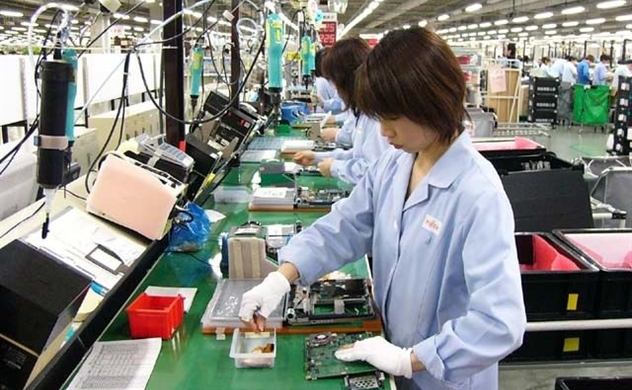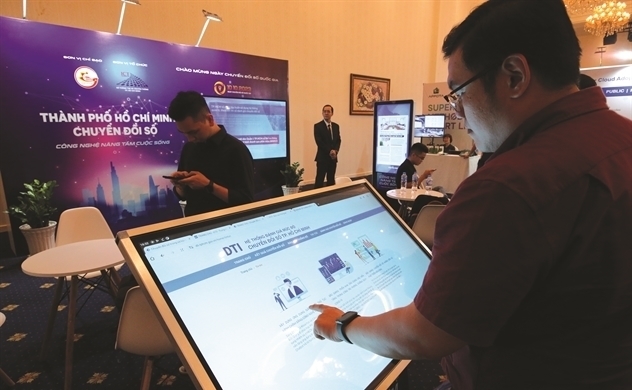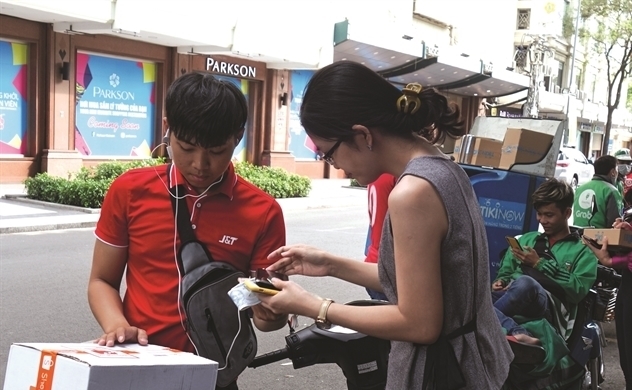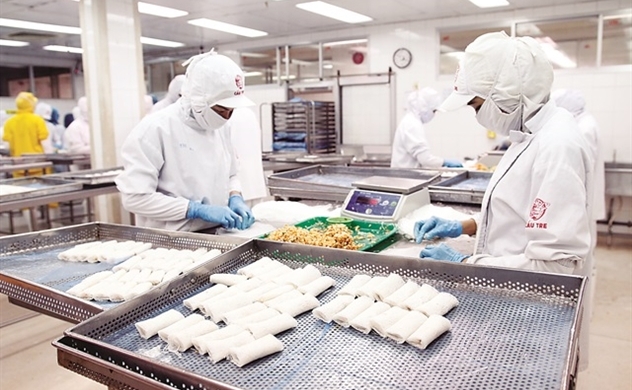High-quality manpower could level up semiconductor development
Vietnam has more than 5,570 IC engineers at present, over 85% of whom are in Ho Chi Minh City. Photo by VNA.
According to market research company Technavioa, the semiconductors market in Vietnam is estimated to grow at a compound annual growth rate of 6.5% between 2021-2025.
Technavio’s report pointed out that the growing consumption demand is driving market growth. To meet the growing demand for hi-tech and smart equipment using semiconductors, manufacturers in the region will open more factories in the country, resulting in surging demand for manpower.
However, the lack of skilled labour in Vietnam is a major challenge impeding market growth, according to the report.
Assoc.Prof.Dr Nguyen Van Quy from the International Training Institute for Materials Science under the Hanoi University of Science and Technology said that many international reports showed Vietnam is short of high-quality engineers capable of holding key roles in semiconductor design and manufacturing.
Tech giants such as Samsung and LG said they are willing to recruit hundreds of design and manufacturing engineers every year, he stressed, adding a shortage of skilled workers will affect investors’ plan to expand production in Vietnam.
Minister of Information and Communications Nguyen Manh Hung said that each year, the country needs about 150,000 engineers for the information technology and digital sectors, but only 40 - 50% of the demand has been met. Notably, the semiconductor industry needs some 5,000 - 10,000 engineers each year, but just 20% can be met.
The big manpower shortage, over 80%, is a major problem needing to be addressed as more than 50 FDI businesses have invested in this industry in Vietnam and they are in need of a large number of personnel.
Experts forecast the semiconductor industry in Vietnam will require about 20,000 personnel holding the bachelor’s or higher degrees in the next five years and about 50,000 engineers in the next 10 years.
FPT Chairman Truong Gia Binh suggested the Government invest in training 30,000-50,000 semiconductor experts to meet the industry’s increasing demand, adding that FPT University wants to receive investment to train semiconductor design and AI engineers to improve the capacity of the workforce in this important sector.
Nguyen Thanh Yen, administrator of the Vietnam Semiconductor Community Group, said that Vietnam should channel investment in human resources training, and the result would be seen in the number of newly established semiconductor firms and the number of students getting jobs in the field every year.
Assoc. Prof. and Dr. Hoang Minh Son, Deputy Minister of Education and Training, said though the semiconductor area is not a new training branch, the number of students and graduates remains very low, leading to a manpower shortage in terms of both quantity and quality.
Facing that fact, the Ministry of Education and Training is building an action plan to step up training to increase the quantity and quality of human resources, particularly integrated circuit (IC) designers, for the sector.
Vietnam has more than 5,570 IC engineers at present, over 85% of whom are in Ho Chi Minh City, 8% in Hanoi and 7% in central Da Nang city. Every year, only about 500 - 600 students graduate from semiconductor training courses of domestic universities, according to data from the National Science and Technology Information Portal.
To quickly raise the number of semiconductor engineers, Son suggested training students who are enrolling in close branches such as electronics engineering, electrical engineering, automation, and mechatronics engineering into those specialised in semiconductor engineering in order to increase the graduates in this field to 3,000 - 4,000 each year.
In addition, many electronics and telecommunications graduates have experience in working for IC and semiconductor-related companies. If receiving more specialised training, they can become a source of high-quality manpower for the industry, he said.
The Deputy Minister also considered re-training the engineers of close majors as a measure for quickly increasing new semiconductor personnel to 5,000 - 6,000 each year.
In 2024, Vietnamese universities will take in 1,000 students and provide them with comprehensive training in integrated circuit design.
Source: Vietnamplus
Same category news
-
Huyền Hoàng
-
Thanh Hang
Latest news
-
Huyen Hoang

 TIẾNG VIỆT
TIẾNG VIỆT 








_291615658.jpg)









